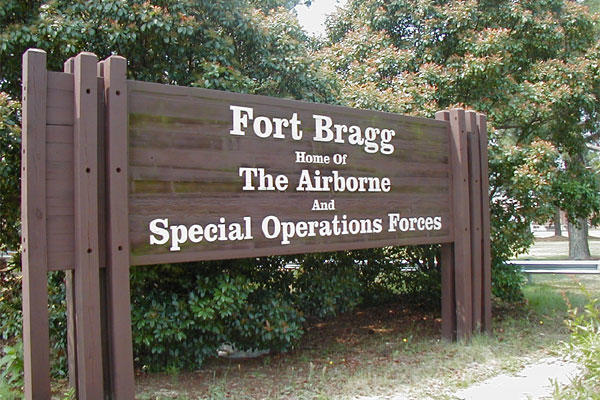The U.S. Defense Department has no immediate plans to change the names of military bases honoring Confederate generals -- including some Ku Klux Klan supporters -- in response to the South Carolina church massacre, Pentagon officials said Wednesday.
"As of now, there's no discussion of adjusting our current naming policy," which now gives the naming responsibility to the service branches, said Army Col. Steve Warren, a Pentagon spokesman.
"The Department's position is that the services are ultimately responsible for naming their installations," he said. We have confidence in each of the services to appropriately name their facilities," he said. The services have not indicated any intention to change names, he said.
There was no immediate list available of military facilities with place names or other symbols honoring the South's role in the Civil War, but at least 10 Army bases are named for Confederate leaders, including Robert E. Lee, revered in the South as leader of the Army of Northern Virginia. Besides bases, there is the Lee Barracks at the U.S. Military Academy.
The issue of Confederate symbols and the names of Confederate leaders on public grounds came to a head on Monday when the Republican governor of South Carolina, Nikki Haley, called for the removal of the Confederate battle flag from the grounds of the state capitol in Columbia.
Haley acted in response to the tragedy last week when 21-year-old Dylan Roof, an avowed white supremacist, allegedly went to a Bible class in the basement of the historic Emanuel A.M.E. Church in Charleston and shot to death eight congregants and the pastor, the Rev. Clementa Pinckney.
Following Haley's action, Gov. Robert Bentley, R-Alabama, ordered four Confederate flags taken down from a monument to Confederate soldiers outside the state Capitol in Montgomery.
In Mississippi, Sen. Roger Wicker, R-Mississippi, joined other officials in calling for a redesign of the state flag, which is the last in the nation to include the Confederate battle flag. In Virginia, Gov. Terry McAuliff, D-Virginia, has called for removal of the Confederate flag from state license plates.
In the military, the names of some of the Army's most well-known bases such as Fort Bragg, Fort Benning and Fort Hood have periodically been subjects of controversy but the naming policy itself dates back to War Department General Order No. 11 in 1832, according to information distributed by Army historians.
"All new posts which may be hereafter established, will receive their names from the War Department, and be announced in General Orders from the Headquarters of the Army," the order read.
The secretary of war often delegated the naming authority to division commanders and others but by World War I complete responsibility was back in the office of the Secretary of War.
In the period between the World Wars, the war secretary would often solicit recommendations for names from installation commanders, the Army said. "It was common for camps and forts to be named after local features or veterans with a regional connection," the service said. "In the southern states they were frequently named after Confederate soldiers."
The 10 Army bases named for Southern officers are:
-- Fort Bragg, North Carolina, named for Gen. Braxton Bragg.
-- Fort Hood, Texas, named for Gen. John Bell Hood.
-- Fort Gordon, Georgia, named for Lt. Gen. John B. Gordon, who was reputed to be the leader of the Ku Klux Klan in Georgia after the war.
-- Fort Lee, Virginia, home of the Army's Quartermaster School and named for Gen. Robert E. Lee.
-- Fort Polk, Louisiana, named for the slave owner and ardent secessionist Gen. Leonidas Polk.
-- Fort Rucker, Alabama, named for Col. Edmund Rucker, who became a leading industrialist in Birmingham after the war.
-- Fort A.P. Hill, Virginia, named for Lt. Gen. A.P. Hill who was killed at the battle of Petersburg a week before the war ended.
-- Fort Picket, Virginia, named for Maj. Gen. George Pickett who was in command for "Pickett's charge" at Gettysburg. Pickett went to Canada for a year after the war, fearing he would be tried as a traitor.
-- Fort Benning, Georgia, named for Brig. Gen. Henry Benning, a slavery supporter and politician.
-- Camp Beauregard, Louisiana, named for Gen. Pierre Gustave Toutant Beauregard, whose troops fired the shots at Fort Sumter, S.C., that started the Civil War.
In a statement, Brig Gen. Malcolm B. Frost, the Army's chief of public affairs, later defended the naming of bases for Confederates.
"Every Army installation is named for a soldier who holds a place in our military history," he said. "Accordingly, these historic names represent individuals, not causes or ideologies. It should be noted that the naming occurred in the spirit of reconciliation, not division."
--Richard Sisk can be reached at Richard.Sisk@military.com




























